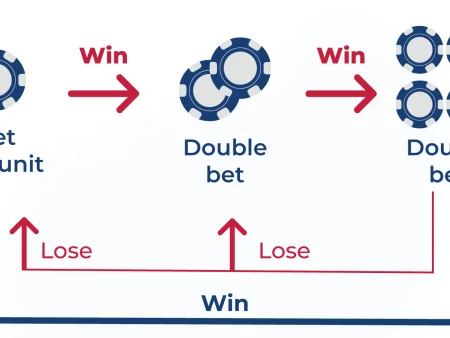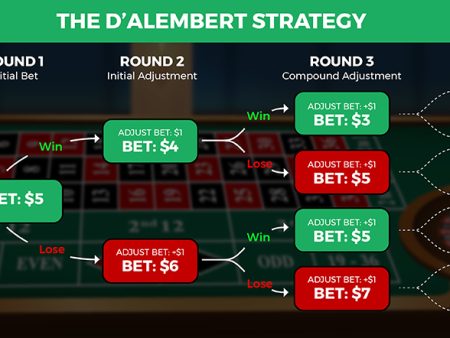
Ever wondered how odds are calculated or how bookies consistently profit? This guide unveils the mechanics behind sportsbooks maintaining an edge over gamblers.
With the expansion of legal sports betting across numerous US states, it’s crucial for bettors to select the right sportsbooks and understand how these entities generate their margins. By registering with multiple online sportsbooks, bettors can strategically leverage odds in their favor.
Origins of Odds Making
Historically, the US sports betting landscape was dominated by Las Vegas sportsbooks and clandestine bookmakers, with bets often placed via telephone. Odds fluctuated as the balance of money shifted from favorites to underdogs.
Bookmakers aimed to “make the book” by accepting bets on all possible outcomes, thus balancing the risks and securing a profit. This process involved maintaining a physical “book” of recorded bets on-site before events.
To construct their book, bookmakers assigned probabilities to each potential outcome, ensuring the total probabilities equated to 100%. They incorporated a 5-10% “vig” or “juice” on each set of odds to guarantee a profit, provided the bets were balanced. By the mid-20th century, large betting companies employed odds compilers who adjusted odds based on the flow of money, using chalkboards for easy updates.
“Power ratings” were also developed, allowing bookies to assess and compare the strengths of teams and players, facilitating more accurate pricing and enabling gamblers to find market value.
Modern Techniques in Calculating Sports Odds
As technology advanced, bookmakers began to rely more on odds compilers and analysts to refine their markets.
Today, the creation of betting odds involves extensive data analysis and number crunching to accurately determine each outcome’s probability. Odds compilers use sophisticated mathematical models to set real-time odds, crucial for in-play betting.
For example, odds might be set based on the home team’s recent performances versus the away team’s form. This real-time odds setting is invaluable in the age of in-play betting, where wagers can be placed during a game as odds fluctuate with the unfolding events.
In 2020, most odds compiling has been outsourced to specialist companies that prepare odds for both in-play and pregame markets. Consequently, some sportsbooks may display nearly identical odds to their competitors. Gamblers must research to discern the best value bets.
Understanding Odds Fluctuations Before Events
When exploring how bookies profit, one must consider how odds change in real time.
Online sports betting sites continuously adjust odds to mirror the shifting weight of money. If a less favored team suddenly draws significant bets, the site may quickly shorten the odds to safeguard its margin.
Conversely, if more money is placed on the favorite, odds for the underdog might increase. Bookmakers also employ analysts to scrutinize every market, considering factors like key player injuries or unexpected team selections, to adjust odds accurately.
Furthermore, astute gamblers capitalize on in-play markets to gain an advantage over sportsbooks. For instance, if a soccer player, initially at +200 to score next, demonstrates increasing aggression with multiple shots on goal, a sharp bettor might place a bet before the sportsbook can adjust the odds, capturing immediate value.
How Bookmakers Ensure Profit
The primary goal of a bookmaker is to generate a profit. Their ability to accurately set odds is directly tied to their potential earnings over time.
Bookmakers aim to create odds that offer them a built-in advantage over bettors. This advantage is known as the vigorish (vig), a mechanism that helps bookies balance bets to secure a profit regardless of the outcome.
Understanding the Vig and Overround
There are two key concepts to grasp in understanding how bookmakers profit: the vig and the overround. The vig represents the bookmaker’s expected profit as a percentage of all wagers, while the overround indicates how much the total book exceeds 100%.
Example of NFL Betting:
Consider a match between the Los Angeles Rams and the Miami Dolphins. Bookmakers start by calculating the implied probability of each outcome, factoring in elements like team form and home advantage:
- Rams win: 65%
- Dolphins win: 35%
- (Total implied probability = 100%)
However, if the Rams are on a winning streak, more money might be placed on them, prompting the bookie to adjust the odds:
- Rams to win at odds of -333 (Implied probability of 76.92%)
- Dolphins to win at odds of +190 (Implied probability of 34.48%)
- (Total implied probability = 111.4%)
This increase to 111.4% represents the overround. By setting this margin, bookmakers ensure a long-term profit.
Parlay Betting
Sportsbooks also offer parlay betting, which involves multiple outcomes in one bet. Each component of the parlay must be correct for the bettor to win. If the overround on one leg of a parlay is 110% and the parlay has five legs, the total overround becomes 150%. This significantly benefits the bookmaker.
Leveling the Playing Field with Multiple Options
The proliferation of sportsbooks, especially in regulated US markets, has somewhat leveled the playing field. With many operators to choose from, no bookie wants to be significantly out of step with the market, for example, offering odds of $10 when others are offering $5.
In the United States, where online sports betting is a growing industry, bettors now have numerous choices. As more states legalize sports betting, the number of betting platforms will increase, leading to more uniform odds across the market.
Future Trends in Odds-Making
As the number of online sportsbooks increases, expect odds to become more standardized. Many bookmakers will follow market trends when setting odds, leading to less variation across different platforms.
Maximizing Betting Value
To maximize potential returns, gamblers should consider registering with multiple sportsbooks to take advantage of the best odds and special promotions such as enhanced odds and free bets. Doing thorough research and staying updated on sports news can also provide an edge.
As the landscape of sports betting continues to evolve, savvy bettors will need to adapt their strategies to keep ahead of standardizing odds and capitalize on any available edge.







